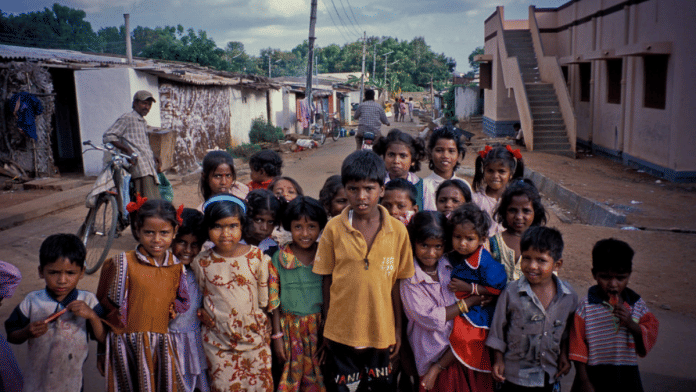Thank you dear subscribers, we are overwhelmed with your response.
Your Turn is a unique section from ThePrint featuring points of view from its subscribers. If you are a subscriber, have a point of view, please send it to us. If not, do subscribe here: https://theprint.in/subscribe/
Inventions and poetry don’t happen due to the sole efforts of some enlightened individuals. They are the outcome of a functioning society, which provides services like food, logistics, security, platforms — freeing some individuals to create poetry and invent stuff. Take these support services away, and the individual would be left fighting the chaos to sustain themselves.
What does the process of organizing humans into larger functioning societies look like? It has been a mix of conflicts, trade and divine stories (religion) in varying proportions throughout history. Community building is not a fully clean process, there are always some rough edges. Communities are not formed because a large group of people had a rational discussion leading to social contracts that everyone agrees to follow for the greater good. Instead it is a chaotic process that results in community formation through efforts of generations. That’s why we should be wary of calls to annihilate existing systems without providing working alternatives. These systems are not the antithesis of individualism and liberalism, rather they often provide the bedrock to support them. That being said, not all community building efforts lead to individualism.
The larger philosophy of these efforts, determines what kind of individual freedoms these systems allow. Over-investing in these efforts can lead to a rigid society where individualism suffocates. Getting this right is really an art. Too much and the individual freedom gets sacrificed at the altar of community. Too little and the individual freedom is useless due to all the chaos. It is like using a knife. Without it, cutting and shaping objects becomes an extremely tedious process. But, it can cause accidental cuts and harm. However, that does not mean that we stop using the knife, but rather that we learn the skills to wield it with minimal damage to ourselves. Societies that get this balance right provide best conditions for human flourishing, creativity and inventions.
I find the attack on religion and rituals for being “unscientific” and the source of all problems shortsighted. It lacks the understanding of the role of religion and rituals in community building, and the fact that pursuing science on scale requires a well functioning society. Note that this does not mean, we should not criticize community building efforts, or that all such efforts are the same. But the criticism should be from the lens of how accommodative is the underlying philosophy of individualism. How practical is it? How aligned is it with average human psychology? Is the resulting community grouping stable and competitive against surrounding groupings? Does the grouping align with natural boundaries and does not outgrow the speed of logistics? Is there a way for others to join this community, without making major sacrifices? With these questions, we can debate the kind of community building suited for a group of people.
For India, in my opinion, Hindutva is the leading community building force on the national level with the highest chance to succeed. There is an alternative of civic nationalism, but we have not had a major civic movement post independence which has captured the imagination of people like millennials of religio-cultural history.
Lot of the problems an average Indian faces are local in nature, mostly due to poor municipal services and corruption. I think we face these problems because of our under-investment in community building efforts and evolution of social contracts. People don’t start following social contracts just because they are codified on some paper. Social contracts are followed when people internalize them either due to training from childhood, societal pressure or fear of punishment from law. Community building efforts play a big role in establishing these conventions. Without these, service providers often indulge in corrupt practices as long as there are benefits to them or their caste group. They don’t see doing their work as a service towards their own larger community.
I wish to see the discourse in India to move away from the unnecessary debate on whether community building efforts based on Hindu cultural ethos are against Hinduism. Instead, we as a nation should focus our energies on building larger and larger communities. We should use all the tools including religion to make it happen. Only then, we get a chance to reach true individualism, and a scientific & cultural renaissance.
These pieces are being published as they have been received – they have not been edited/fact-checked by ThePrint


